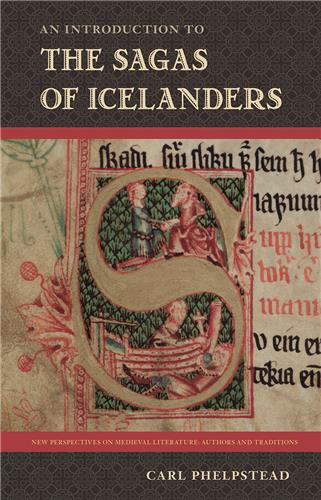Margins, monsters, deviants: alterities in old Norse literature and culture
This anthology explores depictions of alterity, monstrosity and deviation in medieval Icelandic literature, Scandinavian history, and beyond. The authors explore issues of identity, genre, character and text and the interplay between them, challenging long-held perceptions about the lack of ambiguity in Old Norse literature and culture.
Medieval Icelandic literature has often been reduced to the supposedly realist Íslendingasögur and their main protagonists at the expense of other genres and characters. Indeed, such a focus obscures and erases the importance of those beings and narratives that move on the margins of mainstream culture — whether socially, ethnically, ontologically, or textually. This volume aims to offer a new perspective on a variety of theoretical and comparative approaches to explore depictions of alterity, monstrosity, and deviation. Engaging with the interplay of genre, character, text, and culture, and exploring questions of behavioural, socio-cultural, and textual alterity, these contributions examine subjects ranging from the study of fragmented and ‘Othered’ saga narratives, to attitudes towards foreign people and lands, and alterities in mythological and legendary texts. Together the papers effectively challenge long-held perceptions about the lack of ambiguity in medieval Icelandic literature, and offer a far more nuanced understanding of the importance of the ‘Other’ in that society.
zum Buch im ULB-Katalog
zum Buch auf der Verlags-Website
An Introduction to the Sagas of Icelanders
Combining an accessible approach with innovative scholarship, An Introduction to the Sagas of Icelanders provides up-to-date perspectives on a unique medieval literary genre that has fascinated the English-speaking world for more than two centuries. Carl Phelpstead draws on historical context, contemporary theory, and close reading to deepen our understanding of Icelandic saga narratives about the island’s early history.
Phelpstead explores the origins and cultural setting of the genre, demonstrating the rich variety of oral and written source traditions that writers drew on to produce the sagas. He provides fresh, theoretically informed discussions of major themes such as national identity, gender and sexuality, and nature and the supernatural, relating the Old Norse-Icelandic texts to questions addressed by postcolonial studies, feminist and queer theory, and ecocriticism. He then presents readings of select individual sagas, pointing out how the genre’s various source traditions and thematic concerns interact.
Including an overview of the history of English translations that shows how they have been stimulated and shaped by ideas about identity, and featuring a glossary of critical terms, this book is an essential resource for students of the literary form.
zum Buch im ULB-Katalog
zum Buch auf der Verlags-Website
Weitere Titel können Sie in unseren Neuerwerbungslisten für die Nordische Philologie entdecken!


